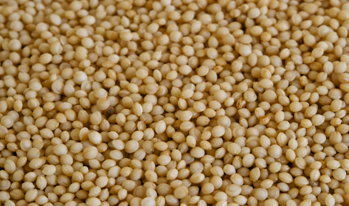
Amaranth
As a source of nutrients, amaranth provides protein, calcium, iron, and zinc. The protein and iron content is higher in amaranth than in many other grains. It also contains a greater concentration of the beneficial amino acids lysine and methionine.
Recognized as gluten free in Canada for many years, amaranth is becoming more widely accepted as a gluten-free grain in the United States. This slower acceptance is most often attributed to the fact that amaranth is not a commonly used grain in the United States and may be at a slight risk for gluten contamination because of possible cross contamination in processing and handling. Remember, if you are among those people who must live gluten free, it is always best to introduce a new grain into the diet slowly and cautiously to ensure that it will not cause problems. There is always the possibility that a gluten-free grain may cause an adverse reaction in some people because of an allergic response to some other substance in the grain.

